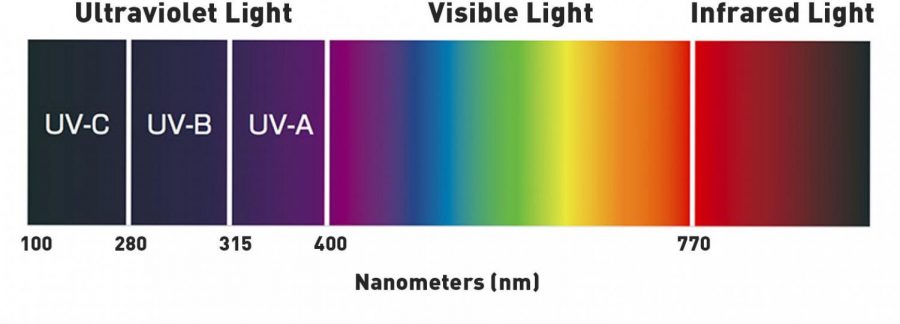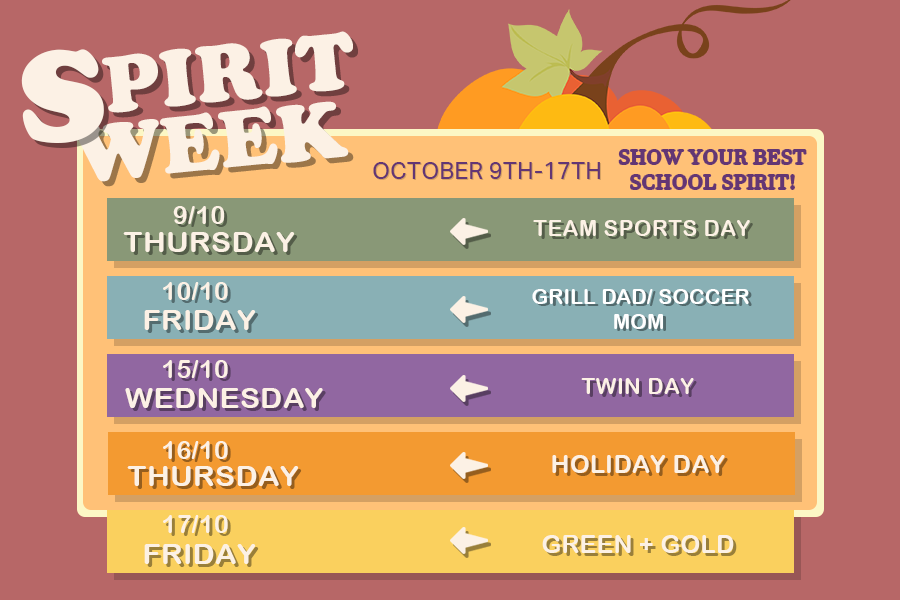Virtual School and the Effects of Screen Time
This is an illustration of the light spectrum and its energies. Blue light can cause strain your eyes in excessive amounts.
September 18, 2020
Are you having more headaches, blurred vision, or recent neck/back pain? You might be suffering from the effects of too much screen time.
With school starting out virtually this year, it’smore difficult to avoid these issues, but if you know how to avoid the downfalls, you should be able to make it through these nine weeks just fine!
It’s important to make the distinction between “screen time” being TV and video games, versus “screen time” being productive and completing tasks/activities via a screen. While they can have overlapping effects, it’s imperative to know the difference.
The screen time from TV and video games tend to be accompanied with issues like or such as
learning, social skills, changes in emotions, personality and disruptions with sleep. Learning is affected due to a lack of attention span, with studies finding that teenagers who watch a lot of TV or play a lot of video games have twice the likelihood of being diagnosed with an attention disorder. Additionally, teenagers that spend “two or more hours a day in front of a computer or TV screen have a higher chance of psychological difficulties,” according to Rally Health and mentioned above.
Virtual school, on the other hand, still creates issues with social skills and sleeping schedules/patterns.
“With online school and how much we’ve been on the computer/our phones, it’s greatly impacted my sleep schedule and even caused an impact on my health… It’s caused a strain on my eyes, so during the day and during classes, I find myself dozing off and trying to stay awake during classes but really struggling to fall asleep at night,” senior Erica Chance said.
Social skills are also affected due to much less face-to-face interaction, which is especially integral to young children. Virtual school will most likely affect students in Kindergarten more than most because many people learn social skills in the beginning grades of school.
The biggest difference is that one isn’t productive while the other is. Where the two collide is through the fact that both unproductive and productive activities on screens is just that — on screens. While your brain is being stimulated through the productivity of work or school, you’re still suffering the consequences of staring at a screen for a long period of time, even if those effects aren’t as bad as they would have been if you just would have watched TV all day. Regardless of what type of screen time you’re having, staring down at your phone, tablet or laptop at length can cause neck, shoulder and back pain.
However, the most common (and harmful) factor is that all of this technology emits blue light. Blue light is a high-energy, high-frequency type of visible light that can be harmful to humans if sustained for a long enough time. Some of the effects of blue light are, simply put, headaches/migraines, eye fatigue/pain and blurred vision. Blue light also promotes poor sleeping patterns because it suppresses melatonin levels, disrupting your circadian rhythm and sleep cycle.
“I’ve been getting lots of headaches actually, pretty much everyday,” senior Morgan Lail said.
“Blue light really bothers my eyes and gives me migraines, but wearing my blue light glasses and turning on amber filters helps!” senior Elaina Bailey said.
If you want to avoid these issues, there are several places where you can buy blue-light blocking glasses. One of the cheaper options is Amazon, although other options include GlassesUSA.com or EyeBuyDirect. Some devices and websites actually reduce their blue light on their own, if you alter the settings. For example, Windows 10 has color filters that change the scheme to block blue light, and Twitter and Instagram have dark modes to make their sites easier on the eyes. If those options don’t sound like your thing, you can also try the 20-20-20 rule. This is a technique eye doctors tend to recommend to people struggling with the negative effects of blue light. Just look at something 20 feet away for 20 seconds every 20 minutes you spend on a screen and you should be feeling better in no time.
https://www.rallyhealth.com/health/unexpected-effects-screen-time
How-blue-light-impacts-eyes-brain






